Emergency Dentist Torrance
Restore Your Oral Health with Timely Emergency Dental Care
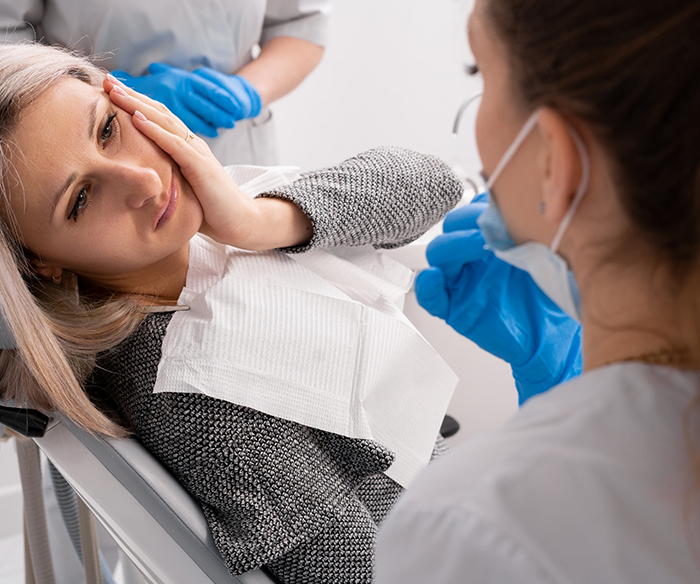
Are you experiencing a dental emergency? If so, please call our dental office immediately for emergency dentistry in Torrance. We try very hard to offer same-day care to our regular patients because we know that getting prompt treatment can be the difference between saving a tooth and saying goodbye to one. But what exactly is a dental emergency, and how should you handle one when it pops up?
Why Choose Blue Coast Dental Group for Emergency Dentistry?
How We Handle Dental Emergencies

- Call Us: Whether you’re experiencing a toothache, just knocked out a permanent tooth, or have a broken or damaged denture, the first step you should always take when you’re experiencing out-of-the-ordinary dental pain or discomfort is to call our office. Our friendly and knowledgeable team will schedule an appointment for you the same day and provide you with tips to address your pain until you arrive.
- Get an Examination: As soon as you arrive at our office, we’ll collect any necessary diagnostic information, like X-rays, and Dr. Hamzehpour will speak with you about your symptoms. Because our practice features a general dentist as well as several specialists, like our prosthodontist, periodontist, and oral surgeon, we’re able to treat most emergencies in-office without having to refer out.
-
Receive a Treatment Plan: Once we’ve diagnosed the issue you’re dealing with, we’ll kick into action developing a treatment plan and walking you through it, so you know exactly what to expect. We’ll also answer any questions you may have and provide you with a detailed cost estimate. That way, you feel well-informed before consenting to move forward.
The Most Common Dental Emergencies
If you find yourself in a dental emergency, never hesitate to call our office so we can provide you with first-aid guidance and address any concerns you may have over the phone. We’ve also included some helpful information on how to handle the most common situations we see below.
Understanding the Cost of Emergency Dentistry
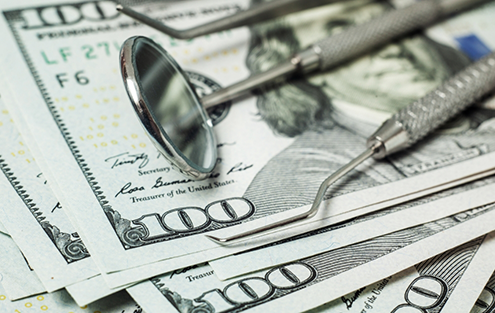
In a dental emergency, patients are often worried about how much treatment will cost. They may even postpone getting help thinking it will somehow save them money. However, the exact opposite happens! The longer you wait to seek help, the more your treatment is likely to cost. Although some medical conditions, like a cold, eventually go away on their own with time, dental problems do not. They only get worse and cause more damage, necessitating more invasive (and expensive) treatments.
Every Dental Emergency Is Different

As convenient as it would be to have a single amount for treating dental emergencies, we believe in addressing each case with a customized approach. After all, patients coming in with the same problem may need differing treatments. Unfortunately, we won’t be able to give you an idea of the cost associated with treatment until we’ve had the chance to examine your mouth and diagnose the cause of the problem. Once we’ve done this, we can talk to you about possible solutions and their estimated costs. Some possible treatments include root canals, tooth extractions, dental crowns, nightguards, or mouthguards.
Does Dental Insurance Cover Dental Emergencies?
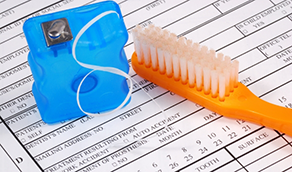
It depends on your policy. Typically, one emergency visit per year is fully covered, but even if you must pay out-of-pocket for your visit, the diagnosis cost is a relatively low amount. The treatment itself is usually partially covered. For example, most dental insurances cover about half of the cost of a dental crown. Before we start any treatment, we will look through your plan and find ways we can save you money on your emergency care.
If needed, we can explain your benefits, so you know exactly how much you’ll be expected to pay out-of-pocket.
Other Options for Making Dental Emergencies More Affordable

We know that the cost of treatment is always a concern for those needing emergency dental care. To help ease your mind, we have several solutions for making dental healthcare costs more manageable. If you do not have dental insurance, you can join our dental savings plan.
For a low annual fee, you get one annual exam and one emergency exam at no extra cost. The membership also includes X-rays and a 20 percent discount on most other services. To divide your expenses into smaller monthly payments, you can apply for CareCredit, which offers low- or even no-interest financing.
Taking Care of Your Smile Can Help You Save Money
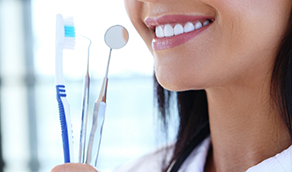
Have you heard the expression, “An ounce of prevention is worth a pound of cure?” It’s definitely true when it comes to your smile. The simplest way to keep your emergency dental healthcare costs as low as possible is to properly maintain your teeth and gums. You need to brush and floss every day to prevent plaque buildup. Then, at least every six months, you need to visit our office for a regular checkup and professional cleaning. If there’s a problem, we can fix it using a more conservative treatment, which costs much less than more intensive procedures.
If you play sports or participate in risky activities, be sure to wear a mouthguard to avoid chipping or knocking out teeth. These small efforts can help protect your smile, as well as your wallet, from a dental emergency.
The Keys to Preventing Dental Emergencies

No two dental emergencies are alike. Even if two people chip their teeth, the severity of the injury will likely vary, possibly resulting in different methods of treatment. The only way to know how to properly address these types of injuries is to see a member of our team at Blue Coast Dental Group. However, wouldn’t it be nice to prevent dental emergencies in Torrance from the start? This is why we’ve compiled some helpful tips to keep your smile better protected from potential injury. While not all accidents are preventable, there are things you can do to ensure your teeth and gums remain damage-free over the years.
Keep Your Routine Dental Appointments
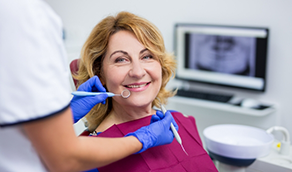
By keeping your regularly scheduled dental checkups and cleanings every six months, you can feel more at ease knowing that your teeth and gums will be decay- and disease-free. Our team of experts is here to check for any signs of tooth decay, gum disease, or even oral cancer and will thoroughly clean your teeth to remove hardened plaque and tartar. With the help of trusted professionals, your smile will carry you through every new stage of life, allowing you to remain confident and comfortable with your appearance.
Stick to a Good Oral Hygiene Routine at Home

If you want to reduce your risk for a serious tooth infection, make sure you’re doing your part by maintaining a good oral hygiene routine at home. Brushing twice a day for two minutes with fluoridated toothpaste, flossing at least once a day, and rinsing with an ADA-approved mouthwash are essential. Your dentist is always open to providing product recommendations or tips on how to improve your oral hygiene routine, so if you want to make sure you’re doing everything right, don’t be afraid to ask during your next appointment.
Maintain a Balanced Diet

Sugars and starches serve as breeding grounds for bacteria and will turn into harmful acids that break down tooth enamel. To reduce your risk for worn enamel, stains, and cavities, swap out the candy and chips for healthier options like leafy greens, fruits, vegetables, lean proteins, and low-fat dairy. These will improve gum health and strengthen tooth enamel to better protect your smile.
Wear a Mouthguard
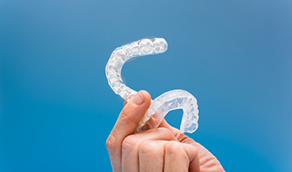
Athletes should always have the right equipment before starting a game. If you enjoy taking to the court, field, or track, make sure you have a customized mouthguard with you. This unique device will protect your teeth from the potential fly ball, stumble, or tackle. By helping to absorb the sudden impact and spreading it out along the arch instead of in one defined area, your teeth and soft tissues will remain safeguarded, avoiding chips, breaks, cuts, and more. Because sports-related injuries are high among teens and adults, this small oral appliance can be one of the most important things you wear, effectively reducing your likelihood of visiting the emergency dental office in Torrance in the middle of a game.
Use Tools to Open Packages, Not Your Teeth

It may be easier to just use your teeth to remove a tag from a piece of clothing or open a package but it’s doing a number on your tooth enamel. While it is strong and durable, it’s not indestructible, and once it’s gone, you can never get it back. This is why you should always take the time to find the right tool instead of using your teeth. It will save your smile in the long run, allowing you to maintain a healthier, more beautiful aesthetic as the years pass. Not to mention, you can avoid the potential of accidentally chipping or breaking a tooth in the process.
Emergency Dentistry FAQs
What’s considered an actual dental emergency?
If you are experiencing pain in your mouth that has occurred as a result of a chipped or cracked tooth, knocked-out tooth, soft tissue laceration, or severe toothache, it is in your best interest to call your dentist’s office and schedule an appointment as soon as possible. Even if you aren’t experiencing any pain but know something doesn’t feel right about a tooth, call us. After assessing the situation, we can walk you through the steps to caring for your emergency at home as well as work to get you in to see one of our skilled dental professionals.
How can I reduce my pain in a dental emergency?
Everything from over-the-counter pain relievers to cold compresses can be used to reduce your pain. Unfortunately, it is finding the root cause of it that can sometimes be difficult and prolong the discomfort. This usually occurs when it is a severe toothache that is causing the problem. No matter the situation, make sure you alert us. We will be happy to assist in providing tips and ways to help with the pain and get you back to feeling better soon.
How should I remove an object that’s stuck between my teeth?
The first thing you should do is rinse your mouth with warm water. This will help to loosen the object. Next, use waxed dental floss to gently move it back and forth between your teeth to try and dislodge the object. If you are unsuccessful, try using a water flosser (irrigator). If you are still unable to remove the object, make sure you get in to see us, as we have special tools we can use to remove it safely and effectively. Never use anything other than floss or a water irrigator to remove anything from your teeth, as you could do additional harm to your mouth.
When should I go to the emergency room for a dental emergency?
While it might be natural to assume that any type of emergency should result in a trip to the ER, when it comes to dental injuries, oftentimes, the best individual to provide treatment is your dentist. The reasons for this are:
- They have more knowledge and experience dealing with dental problems
- The wait times are significantly less than in an ER lobby
- You will receive proper care for the problem and be provided with an effective treatment plan to fix it
Now, there are exceptions when you should get to an ER over the dentist’s office. If you are experiencing continual bleeding, increased swelling, or a broken or fractured jaw, contact us but head straight to the emergency room for immediate medical attention.
Will my toothache go away on its own?
Toothaches rarely go away on their own, and when they do, it’s normally a sign of something more severe. Ignoring the pain can allow more serious dental issues to take root, as the nerves in the tooth can be killed by infection. Without treatment, these issues can worsen, potentially leading to complications like abscesses or tooth loss. While over-the-counter pain relievers may temporarily ease the pain, it’s important to see a dentist as soon as possible to address the root cause of the toothache and prevent further damage to your oral health.
How should I sleep with tooth pain?
Sleeping with tooth pain can be challenging with the throbbing and consistent ache, but there are a few strategies that can help you get some rest. First, try elevating your head with an extra pillow to reduce blood flow to the affected area, which can reduce the throbbing sensation. Taking an over-the-counter pain reliever around 20 minutes before bed can also help manage the discomfort. Putting an ice pack on your cheek can also numb the pain and reduce swelling for better sleep. Your sleep position also matters, so try to avoid lying on the side where the pain is.
Do chipped teeth heal?
Unfortunately, chipped teeth can’t heal on their own. Enamel—the hard, outer layer of your teeth—can’t regenerate like the rest of your body. If you chip a tooth, it’s important to schedule an appointment with us as soon as possible. Depending on the severity of the chip, our team may recommend different treatments, such as smoothing out the rough edges, bonding the tooth with a tooth-colored resin, or placing a crown to restore its shape and function. Leaving a chipped tooth untreated can lead to damage, infection, or decay, so professional care is important to restore your smile.
I Need a Checkup & Cleaning I am Worried About Gum Disease I Have a Cavity or Broken Tooth I am Missing One or More Teeth I Want to Enhance My Smile I Want a Straighter Smile I am Scared of the Dentist I Need Oral Surgery View Our Services
